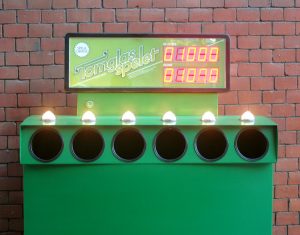This week the UK government announced a proposal to encourage recycling of bottles and cans by creating a returnable deposit scheme funded by increased prices on drinks. Scotland have already announced plans for such a scheme and the Welsh Assembly are also considering this. Such schemes, for glass bottles, we around from early in the 20th century and only died out in the 1980s as plastic and metal drinks packaging became more prevalent. Elsewhere in Europe deposit schemes are well established and successful.
The question that will have to be asked as the details of such a scheme are designed is how big does the payment incentive have to be to encourage recycling? Can we return to an era in which youngsters roam their neighbourhoods looking for bottles to trade in for sweets as happened in the 20th century or has consumer behavior shifted too much?
When this same proposal was mooted in 2010 it was abandoned because retailers and packaging manufacturers were opposed to the idea. One of the key arguments was that the cost of implementing the scheme would be huge but that uptake might be poor. At that time the Institute of Packaging argued deposit schemes stopped in the 1970s because many people were choosing to litter rather than recycle bottles.
There have, since 2010 been some shifts in people’s awareness of the problems caused by plastic pollution, the Open University’s Blue Planet series has had an impact on many consumers that is leading some retailers to redouble their efforts to reduce packaging. However, even with domestic recycling and increased awareness there are still many people who continue to buy single use containers and don’t recycle them. Will the incentive of a few pence back be sufficient incentive for them?
Perhaps the answer lies in a different approach to motivation; play. In 2009 Volkswagen launched their fun theory project, the concept of which was to change behaviour by motivating people in a playful way. The project led to a series of viral videos which promoted the VW brand through association with a series of innovative ideas. Amongst these were a piano staircase to promote walking up stairs rather than taking the escalator and the world’s deepest bin , which used sound to convey the sense of the bin being, very, very deep. Another idea, which is most pertinent to the issue of recycling, was the Bottle Bank Arcade. This idea included electronics into a bottle bank so that whenever a bottle was added the ‘player’ scored points. The experiment showed far many more people added bottles to this bank than to a comparable one nearby.
These experiements were one-off pieces which attracted lots of attention because of their novelty, however critics ask whether such an approach would work over a longer period of time. For instance, would people become bored with the bottle bank arcade and eventually revert to their previous recycling behavior?
If the government is serious about this scheme then the best way forward may be to look for a way in which the two approaches of monetary reward and play could be combined to create a system which encourages people to keep recycling for the long-term. For example, what if random monetary rewards were paid out when a bottle and can bank was used? Rather than everyone receiving a small amount of deposit back each time they used the bank the money could accumulate so that every so often there was a chance of winning a larger sum. Or sponsors might be sought to offer prizes at random as well as the deposit money. The idea of random rewards is a gamification principle, applying this and other principles could potentially lead to some interesting design ideas to ensure sustained use of the facility.
There are however some service and systems issues to consider when designing a new bottle bank. Others organisations have tried to use the fun theory approach to improve social behavior, one such example being the use of talking bins in Villiers Street in London to try to encourage people not to drop fast food packaging and cigarette butts in the street. This approach led to increased use of the bins as hoped but the consequences were that over-stretched street cleaners needed to empty them more frequently. Design thinking is needed for these new bottle banks to consider the system as a whole and ensure that a national scheme is robust and workable.


Leave a Reply